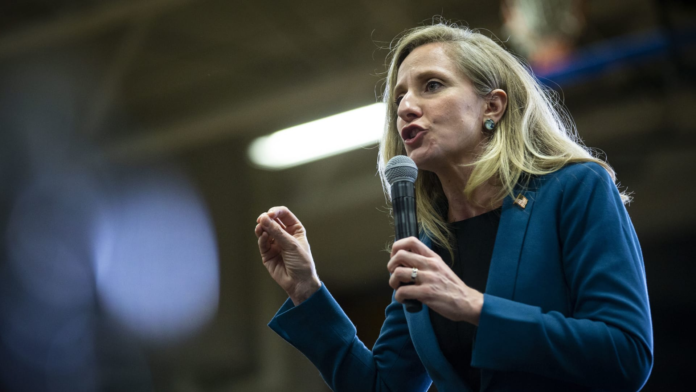This is part of a FreightWaves series on the electronic logging device mandate. Federal regulators began enforcing the mandate on April 1, 2018. Read more from this series here.
Industry insiders are accusing some ELD vendors of exploiting flaws in the Federal Motor Carrier Safety Administration’s technical specifications to let trucking companies and their drivers add “ghost co-drivers” to skirt hours-of-service rules.
Recently, a driver using ELD Rider software recorded a ghost co-driver being added to his device within 15-20 minutes after the driver contacted the company to request more hours.
The truck driver requested that FreightWaves not link to the video in the article for fear that his voice or truck may be recognized by ELD Rider representatives. Instead, FreightWaves agreed to use screenshots from the video to illustrate how the ghost co-driver process is done.
Screenshots from the video showing how ELD Rider added a “ghost co-driver.” (Submitted video)
At the time the U.S. driver contacted the ELD Rider representative in Serbia, the driver, who didn’t want to be named for fear of retaliation, had no drive time left on his clock and only 12 hours remaining on his 70-hour cycle before he was required by federal law to take a 34-hour reset.
The video, which was reviewed by FreightWaves, shows an alert being sent to the engine control module (ECM) connected to the driver’s truck. The alert notified the driver that a representative was logging him off and taking over to edit his logs.
He later received a call from ELD Rider confirming that the representative had edited the log to add a co-driver, often referred to as a ghost driver. The video then pans to the driver logging back into his device, showing that he now had almost 10 hours of drive time left in his day and around 68 hours remaining on his cycle before he must take 34 consecutive hours off duty before driving again.
However, one source alleges that trucking companies and their drivers that use ghost co-drivers rarely take their three-day federally-mandated breaks. That’s because once a driver is running low on hours, a call to an ELD Rider representative logs them out of the software to manipulate their hours, so technically, the driver never has to take an extended break, the source claims.
As of publication, LionEight LLC is listed on the FMCSA registry as the company that owns the ELD Rider software.
FMCSA’s registered ELD list doesn’t reflect the alleged new owners of ELD Rider. (Screenshot)
On background, counsel representing LionEight TMS LLC, said LionEight LLC “is entirely separate from LionEight TMS, [and] was sold to Darex [Solutions] last year.
“The sale included all of LionEight’s assets, the ELD software and accounts,” the attorney added. “ LionEight TMS has nothing to do with these devices.”
LionEight TMS continues to own the rights to the actual name “LionEight.”
“Darex is using the name ‘LionEight’ under the terms of a temporary license agreement it has with LionEight TMS,” the attorney said.
All of the businesses are listed to the same address in McCook, Illinois, including the new LionEight TMS entity, according to the Illinois secretary of state’s business entity website.
The attorney said LionEight TMS, which is launching a new product offering in May, has no involvement with the devices or the conduct that FreightWaves uncovered with the help of industry sources familiar with the use of “ghost co-drivers.”
A whistleblower told FreightWaves that representatives of ELD Rider have been manipulating drivers’ HOS logs to “cheat the system” since 2019, even though it’s unclear whether LionEight LLC sold the company to Darex Solutions in December.
Fleets using automatic onboard recording device systems (AOBRDS) were forced to switch to ELDs by December 2019. Some vendors developed workarounds to attract customers who wanted to add ghost co-drivers to cheat on HOS logs.
“Things really got out of hand in late 2019 when AOBRDS were being phased out,” an industry source, who didn’t want to be named for fear of retaliation, told FreightWaves.
In a March 16 email to customers, LionEight LLC announced it would be changing its name to Darex Solutions, effective April 3.
“All of the charges from former LionEight LLC will now be reflected with the new name Darex Solutions LLC and associated with the same bank account,” stated the email, which was obtained by FreightWaves.
The email, signed by the Darex Solutions LLC Team, formerly LionEight LLC, stated, “Additionally, there has been no change in management and in the range of products and services we offer.”
A source familiar with the situation independently reviewed the recording of the ELD Rider representative adding a ghost driver. The source says the video was forwarded to federal investigators a few days before the ELD provider announced it was changing its name.
However, FMCSA did not confirm whether it had reviewed the video or was investigating claims about the ELD Rider HOS app and its alleged ghost co-driver feature.
“FMCSA does not comment on ongoing investigations or enforcement procedures,” the regulatory agency said in an email to FreightWaves. “However, each device listed/registered as an ELD must meet the minimum requirements established in 49 CFR part 395, Subpart B, Appendix A. FMCSA has a process to monitor ELD regulatory compliance, and those devices found to not meet these requirements will be removed from the ELD registration list.”
Ramping up enforcement?
It appears FMCSA, which regulates the trucking industry, is ramping up enforcement to crack down on ELD providers that do not meet federal requirements. The agency has removed five devices from its registry this year, which is more than it revoked in the previous four years, with only two revocations in 2022.
The FMCSA removed All-Ways Track ELD from its self-certification registry on Monday. The vendor has until May 26 to make the necessary changes before it can recertify its device. Until then, the agency is urging All-Ways’ ELD customers to use paper logs while the issues are addressed.
FMCSA revoked two ELD providers, TMS One’s ELD One and its sister company One Plus ELD’s 1 PL Logs, from its registry two months ago. Executives at the companies providing these two devices have already self-certified another HOS-tracking app, CN ELD, with FMCSA.
After FMCSA revoked ELD One from its registry in January, CEO Radu Murzac acknowledged that his device was “not in full compliance” with the mandate. A week later, 1 PL Logs, which used the same source code as ELD One, was removed from the list of approved devices.
“When we first came to market, the process to become an ELD provider was relatively new,” Murzac told FreightWaves. “We navigated this process with the best interpretation of the law as we could. However, we’ve come to learn that the interpretation and logic we based a few components of our platform on was not in full compliance of the mandate.”
Sources familiar with ELD One and 1 PL Logs allege customers were able to use a ghost co-driver option.
Murzac acknowledges that he has a team of people overseas providing customer support and monitoring services. He said there are many third-party services in the industry that he has nothing to do with “that offer ghost driver services.”
He also said he is aware that some ELD providers cheat the system.
“Most, if not all, ELDs are probably subject to such manipulations,” Murzac said in an email to FreightWaves.
According to Illinois secretary of state business filings, a new company called ELD Connection Inc. is owned by Murzac’s partner, Karina Hryhoruk. A source familiar with the new company said ELD Connection is currently moving customers over to the new CN ELD platform.
Watch now: What has been the impact of the ELD in trucking?
‘Self-certification’ of ELDs was a ‘non-issue’ within FMCSA for years
In September, the FMCSA began seeking comments from the public on possible revisions to improve regulations governing the use of ELDs and to address concerns about technical specifications that have been raised by compliant ELD providers.
This is good news for some ELD providers that have taken it upon themselves to police the industry.
Industry insiders and safety groups are critical of FMCSA’s decision to allow ELD providers to self-certify their devices. Under Canada’s ELD mandate, it requires independent third-party testers to vet the companies to ensure their software meets the technical requirements, which may make the ELDs less susceptible to manipulation.
Independent third-party testing was not an option in the U.S., according to Duane DeBruyne, who served as the FMCSA’s spokesman from 2005 to 2021, because “Congress did not provide dedicated funding” to cover the costs.
“FMCSA followed the model established by its sister USDOT agency, the National Highway Traffic Safety Administration (NHTSA), which has long made use of ‘self-certification’ in the myriad of vehicle components it regulates,” DeBruyne wrote in an email to FreightWaves.
After 16 years, DeBruyne retired as FMCSA’s spokesman in early January 2022. He said he’s unable to authoritatively comment on the happenings over the past 15 months about why the agency failed to investigate alleged cheating by some ELD providers to skirt HOS regulations.
However, he agrees that the regulatory agency appears to be ramping up enforcement to revoke fraudulent ELDs.
“By the end of December 2021, with the number of ELD manufacturers having grown exponentially, FMCSA program staff did begin looking into possible illegal products,” DeBruyne said.
“However, for the period covering the previous 45 months, ‘self-certification’ of ELDs was a ‘non-issue’ within the agency,” he said.
One source described the actions of vendors that take advantage of flaws in FMCSA’s self-certification process as the “untraceable, perfect crime [that] is taking place on the federal level at the hands of FMCSA-registered ELD providers.”
“Numerous laws of the federal government of the United States are being broken every day, every hour and every minute by thousands of people,” the unnamed source told FreightWaves.
The FMCSA’s goal of increasing safety on the road and in the work environment won’t be achieved if some ELD providers continue to flout the law, the source said.
Industry advocates argue that ELDs haven’t made highways, trucking companies and truck drivers safer. According to a FreightWaves report, the National Highway Traffic Safety Administration shows that crashes involving large trucks have increased since the mandate was issued.
Illegal ELD providers and the trucking companies that use their products are “putting the lives and well-being of millions in grave danger,” the industry source told FreightWaves. “Drivers are often abused by being forced to drive without rest, and tired drivers are much more likely to cause an accident on the road.”
Do you have a news tip or story to share? Send me an email or message me @cage_writer on Twitter. Your name will not be used without your permission.
Read related articles here:
Foreign truckers allege US job offers turned into human-trafficking scheme
Driver says trucking company threatened family after he alleged illegal practices
Investigative: KeepTruckin fights NTSB bid to remove its ELD technology in wake of crash



